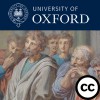Faculty of Philosophy

Oxford is one of the world's great centres for philosophy. More than one hundred and fifty professional philosophers work in the University and its colleges, between them covering a vast range of subjects within philosophy. Many are international leaders in their fields. The Faculty of Philosophy is one of the largest departments of philosophy in the world, and is widely recognized to be amongst the best.
Its reputation draws many distinguished visiting philosophers; each year around fifty philosophers from around the world give lectures or seminars in Oxford. Almost every major philosopher speaks in Oxford at some time.
Each year, more than five hundred undergraduates are admitted to study philosophy in Oxford, always in combination with another subject. The Faculty also has more than a hundred graduate students, who are either taking a taught graduate degree or working for a doctorate.
Oxford is a collegiate university, and every registered student becomes a member of one of the colleges. In this way, he or she has access, not only to the very extensive libraries and facilities of the University, but also to the varied and more intimate life of a college. Colleges offer their students excellent libraries and facilities of their own.
Teaching at Oxford is by lectures and seminars, and by tutorials or supervisions. Courses of lectures and seminars are offered on a very large range of topics, for both undergraduates and graduates. Tutorials are a special feature of Oxford; undergraduates receive regular and frequent tutorials either individually or in pairs from members of the Faculty. All graduate students also receive frequent individual supervisions.
Oxford University dates from the 12th Century or before. The first colleges were founded in the 13th Century. The ancient buildings remain, mingled with magnificent architecture from subsequent centuries, to make Oxford one of the most inspiring and beautiful cities in the world. Within this setting, Oxford remains at the forefront of philosophy.
Series associated with Faculty of Philosophy
| # | Episode Title | Description | People | Date | |
|---|---|---|---|---|---|
| 638 | From Philosophy to Code: The Role of the Humanities in the AI Age | Philosopher–technologist Brendan McCord joins Dr Caroline Green to explore how the humanities can shape the AI age, from human-centered design to raising “philosopher-builders” who code with ethical purpose. | Brendan McCord, Caroline Green | 12 Nov 2025 | |
| 637 | 6-Pack of Care: Ambassador Audrey Tang and Dr Caroline Green on the ‘Civic Care’ approach | In this episode, Dr. Caroline Green is joined by Ambassador Audrey Tang to introduce the “6-Pack of Care” framework—a practical architecture for embedding civic care into AI governance. | Audrey Tang, Caroline Green | 02 Oct 2025 | |
| 636 | AI and Human Rights: Professor Yuval Shany on AI, Law, and Global Accountability | How can human rights frameworks keep pace with the rapid development and global impact of artificial intelligence? | Yuval Shany, Caroline Green | 05 Aug 2025 | |
| 635 | AI and Democracy: Ambassador Audrey Tang on Plurality in Practice, Transparency and Collective Intelligence | What if AI could strengthen democracy instead of destabilising it? | Audrey Tang, Caroline Green | 05 Aug 2025 | |
| 634 | Accelerating AI Ethics TRAILER | This series aims to spark urgent conversations about the most pressing ethical issues in AI. Dr Caroline Green, Director of Research at the Institute for Ethics in AI introduces the series. | Caroline Green | 05 Aug 2025 | |
| 633 | The Vagueness of Demandingness Objections | A St Cross Special Ethics Seminar, recorded at St Cross College, Oxford in February 2024. | Marcel van Ackeren | 28 Mar 2024 | |
| 632 | Creative Commons | 2023 Annual Uehiro Lectures in Practical Ethics: Knowledge and Achievement as Public Policy Goals (3 of 3) | A recording of the third and final of Professor Hurka's rescheduled lectures, series title Knowledge and Achievement: Their Value, Nature, and Public Policy Role | Thomas Hurka | 15 Mar 2024 |
| 631 | Creative Commons | 2023 Annual Uehiro Lectures in Practical Ethics: Degrees of Value in Knowledge and Achievement (2 of 3) | A recording of the second of Professor Hurka's rescheduled lectures, series title "Knowledge and Achievement: Their Value, Nature, and Public Policy Role" | Thomas Hurka | 15 Mar 2024 |
| 630 | Creative Commons | 2023 Annual Uehiro Lectures in Practical Ethics: Knowledge and Achievement as Organic Goods (1 of 3) | A recording of the first of Professor Hurka's rescheduled lectures, series title "Knowledge and Achievement: Their Value, Nature, and Public Policy Role" | Thomas Hurka | 15 Mar 2024 |
| 629 | Morality and Personality | Professor Predrag uses a comparison of money and morality to explore the mutual relationship between morality and personality. | Predrag Cicovacki | 09 Nov 2023 | |
| 628 | Creative Commons | Is AI bad for democracy? Analyzing AI’s impact on epistemic agency | Professor Mark Coeckelbergh considers whether AI poses a risk for democracy n this St Cross Special Ethics Seminar | Mark Coeckelbergh | 13 Mar 2023 |
| 627 | Creative Commons | Shallow Cognizing for Self-Control over Emotion & Desire | In the first St Cross Special Ethics Seminar of 2023, Dr Larry Lengbeyer explores 'shallow cognizing' as a form of self-control | Lawrence Lengbeyer | 02 Feb 2023 |
| 626 | Why is trust in the government so vital during a pandemic? (Jamie Webb) | During the pandemic, there were social gatherings in Number 10. This seriously undermined trust in government. But what exactly is trust? And why is trust so vital during a pandemic? Jamie Webb explains. | Jamie Webb, David Edmonds | 05 Dec 2022 | |
| 625 | Pandemics and inequality (Beth Kamunge-Kpodo and John Coggan) | The pandemic had disproportionate impacts when measured by ethnicity, gender and geography. Beth Kamunge-Kpodo and John Coggan are both legal scholars, and both are interested in inequality. | Beth Kamunge-Kpodo, John Coggan, David Edmonds | 05 Dec 2022 | |
| 624 | Assessing public attitudes to both the pandemic and the government's response (Sarah Cunningham Burley) | At the start of the covid pandemic there was little time for officials to consult the public. Sarah Cunningham Burley oversaw some public dialogues to assess public attitudes to the pandemic, and to the government’s response. | Sarah Cunningham Burley, David Edmonds | 05 Dec 2022 | |
| 623 | The use and misuse of health statistics and pandemic data (Melanie Smallman and James Wilson) | During the height of the Covid pandemic we became accustomed to watching, listening to and reading about experts in health statistics. J. Wilson and M.Smallman have been researching the use, and sometimes misuse of pandemic data. | Melanie Smallman, James Wilson, David Edmonds | 05 Dec 2022 | |
| 622 | Who gets the vaccine first? (Jonny Pugh) | Vaccines to combat Covid were developed in record time. Policy-makers then faced a tricky question. It was impossible to vaccinate everyone immediately: so who to inoculate first? Jonny Pugh says there were complex trade-offs. | Jonny Pugh, David Edmonds | 05 Dec 2022 | |
| 621 | Introducing the Pandemic Ethics Accelerator Programme (Ilina Singh) | The Pandemic Ethics Accelerator programme was led by Ilina Singh, an Oxford Professor of Neuroscience and Society. In this interview she explains what the programme was, what it was designed to achieve and whether it succeeded. | Ilina Singh, David Edmonds | 05 Dec 2022 | |
| 620 | Creative Commons | The Moral Machine Experiment | In this St Cross Special Ethics Seminar, Dr Edmond Awad discusses his project, the Moral Machine, an internet-based game exploring the ethical dilemmas faced by driverless cars. | Edmond Awad | 09 Nov 2022 |
| 619 | Creative Commons | When does (or did) the Covid-19 pandemic end? | Katrien Devolder interviews Erica Charters, Professor of the Global History of Medicine at the University of Oxford | Erica Charters, Katrien Devolder | 04 Oct 2022 |
| 618 | Creative Commons | How to understand, and interact with, AI | Professor Peter Railton presents his take on how to understand, and interact with, AI | Peter Railton, Katrien Devolder | 04 Oct 2022 |
| 617 | Hope in Healthcare | In this St Cross Special Ethics Seminar, Professor Stephen Clarke the role of hope in patients undergoing major healthcare procedures, and how it relates to decision-making in situations of risk and uncertainty. | Stephen Clarke | 20 Jun 2022 | |
| 616 | 2022 Annual Uehiro Lectures in Practical Ethics: Ethics and Artificial Intelligence (3 of 3) | In last of the three 2022 Annual Uehiro Lectures in Practical Ethics, Professor Peter Railton explores how we might "programme ethics into AI" | Peter Railton | 31 May 2022 | |
| 615 | 2022 Annual Uehiro Lectures in Practical Ethics: Ethics and Artificial Intelligence (2 of 3) | In the second 2022 Annual Uehiro Lectures in Practical Ethics, Professor Peter Railton explores how we might "programme ethics into AI" | Peter Railton | 31 May 2022 | |
| 614 | 2022 Annual Uehiro Lectures in Practical Ethics: Ethics and Artificial Intelligence (1 of 3) | In the first of three 2022 Annual Uehiro Lectures in Practical Ethics, Professor Peter Railton explores how we might "programme ethics into AI" | Peter Railton | 31 May 2022 | |
| 613 | Creative Commons | Against Legalizing Female 'Circumcision' of Minors | In this St Cross Special Ethics Seminar, Dr Brian Earp argues that all medically unnecessary genital cutting of non-consenting persons should be opposed on moral and legal grounds. | Brian D. Earp | 16 May 2022 |
| 612 | Creative Commons | Should we give COVID vaccines to young children? | Katrien Devolder and Dominic Wilkinson explore reasons why some parents are vaccine-hesitant | Katrien Devolder, Dominic Wilkinson | 10 May 2022 |
| 611 | Creative Commons | Defending the selective restriction of liberty during pandemics | Katrien Devolder and Julian Savulescu discuss the ethics of lockdowns | Katrien Devolder, Julian Savulescu | 10 May 2022 |
| 610 | Is vaccine nationalism justified? | Katrien Devolder and Jonathan Pugh discuss vaccine nationalism | Katrien Devolder, Jonathan Pugh | 10 May 2022 | |
| 609 | Vaccine policies and challenge trials: the ethics of relative risk in public health | In this St Cross Special Ethics Seminar, Dr Sarah Chan outlines some risks arising from the deliberate infection of human participants to infectious agents for research purposes | Sarah Chan | 24 Nov 2021 | |
| 608 | Do We Need Mental Privacy? The Ethics of Mind Reading Reloaded | Marcello Ienca discusses moral and legal issues surrounding the decoding – ‘mind reading’ - of brain activity | Marcello Ienca | 22 Nov 2021 | |
| 607 | Factory farms are breeding grounds for pandemics | Katrien Devolder and Aaron Gross discuss the link between factory farm and zoonotic diseases. | Aaron Gross | 09 Nov 2021 | |
| 606 | Ethics in AI Seminar: Responsible Research and Publication in AI | Ethics in AI Seminar - presented by the Institute for Ethics in AI | Peter Millican, Rosie Campbell, Carolyn Ashurst, Helena Webb | 12 Jul 2021 | |
| 605 | Ethics in AI Colloquium with Adrienne Mayor: Gods and Robots: Myths, Machines, and Ancient Dreams of Technology | Part of the Colloquium on AI Ethics series presented by the Institute of Ethics in AI. This event is also part of the Humanities Cultural Programme, one of the founding stones for the future Stephen A. Schwarzman Centre for the Humanities. | Adrienne Mayor, Shadi Bartsch-Zimmer, Armand D'Angour, John Tasioulas | 12 Jul 2021 | |
| 604 | AI in a Democratic Culture - Presented by the Institute for Ethics in AI | Launch of the Institute for Ethics in AI with Sir Nigel Shadbolt, Joshua Cohen and Hélène Landemore. Part of the Colloquium on AI Ethics series presented by the Institute for Ethics in AI | Joshua Cohen, Hélène Landemore, Nigel Shadbolt | 12 Jul 2021 | |
| 603 | Waiver or understanding? A dilemma for autonomists about informed consent | Professor Gopal Sreenivasan delivers a New St Cross Special Ethics Seminar on the topic of Informed Consent. | Gopal Sreenivasan | 08 Jun 2021 | |
| 602 | Fighting diseases of poverty through research: Deadly dilemmas, moral distress and misplaced responsibilities | A New St Cross Special Ethics Seminar, with Professor Maureen Kelley. | Maureen Kelley | 24 May 2021 | |
| 601 | Should we feed our pets a vegan diet? | Katrien Devolder and Josh Milburn discuss whether it's ethical - and possible - to feed our pets a vegan diet. | Josh Milburn, Katrien Devolder | 08 Apr 2021 | |
| 600 | Towards a plasticity of the mind – New-ish ethical conundrums in dementia care, treatment, and research | A New St Cross Special Ethics Seminar with Dr David M Lyreskog. | David M Lyreskog | 01 Mar 2021 | |
| 599 | How to prevent future pandemics | Katrien Devolder and Jeff Sebo on factory farms as breeding grounds for pandemics | Jeff Sebo, Katrien Devolder | 17 Feb 2021 | |
| 598 | The Neuroscience of a Life Well-Lived | Professor Morten L. Kringlebach explains how recent advances in neuroimaging offer an insight into hedonia and eudaimonia, and draws out implications for neuropsychiatric disorders. | Morten L. Kringelbach | 27 Jan 2021 | |
| 597 | Creative Commons | Turing 2018/8: Searle versus Turing - Conclusion | Lecture 8 in Peter Millican's 2018 Turing series. | Peter Millican | 14 Jan 2021 |
| 596 | Creative Commons | Turing 2018/7: Blockhead, the Chinese Room, and ELIZA | Lecture 7 in Peter Millican's 2018 Turing series. | Peter Millican | 14 Jan 2021 |
| 595 | Creative Commons | Turing 2018/6: "Computing Machinery and Intelligence" - Overview of Turing's 1950 paper | Lecture 6 in Peter Millican's 2018 Turing series. | Peter Millican | 14 Jan 2021 |
| 594 | Creative Commons | Turing 2018/5: Settling Hilbert's Entscheidungsproblem, and the Halting Problem | Lecture 5 in Peter Millican's 2018 Turing series. | Peter Millican | 14 Jan 2021 |
| 593 | Creative Commons | Turing 2018/4: Enumerating the Computable Numbers, and the Universal Turing Machine | Lecture 4 in Peter Millican's 2018 Turing series. | Peter Millican | 14 Jan 2021 |
| 592 | Creative Commons | Turing 2018/3: "On Computable Numbers" - Turing's 1936 Paper | Lecture 3 in Peter Millican's 2018 Turing series. | Peter Millican | 14 Jan 2021 |
| 591 | Creative Commons | Turing 2018/2: Hilbert's Programme and Gödel's Theorem | Lecture 2 in Peter Millican's 2018 Turing series. | Peter Millican | 14 Jan 2021 |
| 590 | Creative Commons | Turing 2018/1: Types of number, Cantor, infinities, diagonal arguments | Lecture 1 in Peter Millican's 2018 Turing series. | Peter Millican | 14 Jan 2021 |
| 589 | Does AI threaten Human Autonomy? | This event is also part of the Humanities Cultural Programme, one of the founding stones for the future Stephen A. Schwarzman Centre for the Humanities. | Peter Millican, Jonathan Pugh, Jessica Morley, Carina Prunkl | 07 Dec 2020 | |
| 588 | Creative Commons | Affect, Value and Problems Assessing Decision-Making Capacity | MT20 New St Cross Special Ethics Seminar with Assoc. Professor Jennifer Hawkins | Jennifer Hawkins | 23 Nov 2020 |
| 587 | 2020 Annual Uehiro Lectures in Practical Ethics (3/3): The case for an unfunded pay as you go (PAYG) pension | Professor Michael Otsuka (London School of Economics) delivers the final of three public lectures in the series 'How to pool risks across generations: the case for collective pensions' | Michael Otsuka | 17 Nov 2020 | |
| 586 | 2020 Annual Uehiro Lectures in Practical Ethics (2/3): The case for collective defined contribution (CDC) | Professor Michael Otsuka (London School of Economics) delivers the second of three public lectures in the series 'How to pool risks across generations: the case for collective pensions' | Michael Otsuka | 17 Nov 2020 | |
| 585 | 2020 Annual Uehiro Lectures in Practical Ethics (1/3): The case for a funded pension with a defined benefit (DB) | Professor Michael Otsuka (London School of Economics) delivers the first of three public lectures in the series 'How to pool risks across generations: the case for collective pensions' | Michael Otsuka | 17 Nov 2020 | |
| 584 | Privacy Is Power | Part of the Colloquium on AI Ethics series presented by the Institute of Ethics in AI. This event is also part of the Humanities Cultural Programme, one of the founding stones for the future Stephen A. Schwarzman Centre for the Humanities. | Carissa Véliz, Sir Michael Tugendhat, Stephanie Hare, John Tasioulas | 05 Nov 2020 | |
| 583 | Algorithms Eliminate Noise (and That Is Very Good) | Part of the Colloquium on AI Ethics series presented by the Institute of Ethics in AI. This event is also part of the Humanities Cultural Programme, one of the founding stones for the future Stephen A. Schwarzman Centre for the Humanities. | John Tasioulas, Ruth Chang, Sir Nigel Shadbolt, Cass Sunstein | 05 Nov 2020 | |
| 582 | Ethics in AI Education | This event is also part of the Humanities Cultural Programme, one of the founding stones for the future Stephen A. Schwarzman Centre for the Humanities. | Peter Millican, Milo Phillips-Brown, Max Van Kleek, Helena Webb | 05 Nov 2020 | |
| 581 | Conscience Rights or Conscience Wrongs?: Debating conscientious objection in healthcare | Alberto Giubilini and David Jones trade views and argue each other's position on conscientious objection in healthcare | Alberto Giubilini, David Jones | 14 Oct 2020 | |
| 580 | Covid-19: who should be vaccinated first? | Katrien Devolder interviews Alberto Giubilini. | Alberto Giubilini, Katrien Devolder | 24 Sep 2020 | |
| 579 | The Risks of Coronavirus Contact Tracing Apps | Katrien Devolder interviews Associate Professor Carissa Véliz. | Carissa Véliz, Katrien Devolder | 24 Sep 2020 | |
| 578 | Why Parental Status Matters When Allocating Scarce Medical Resources | Katrien Devolder interviews Moti Gorin. | Moti Gorin, Katrien Devolder | 24 Sep 2020 | |
| 577 | Fair Access to Covid-19 Treatment in Mexico | Philosopher César Palacios-González talks about how corruption and racism in Mexico created serious hurdles for developing federal guidelines for deciding who gets to access scarce medical resources. | César Palacios-González, Katrien Devolder | 08 Jul 2020 | |
| 576 | Creative Commons | General Philosophy 2018 Handouts | PDF handouts to accompany Peter Millican's 2018 General Philosophy series. | Peter Millican | 23 Jun 2020 |
| 575 | Creative Commons | General Philosophy 2018 Slides | PDF slides to accompany Peter Millican's 2018 General Philosophy series. | Peter Millican | 23 Jun 2020 |
| 574 | Creative Commons | GenPhil 2018/8: God and Morality | Lecture 8 in Peter Millican's 2018 General Philosophy series. | Peter Millican | 23 Jun 2020 |
| 573 | Creative Commons | GenPhil 2018/7: Free Will and Responsibility | Lecture 7 in Peter Millican's 2018 General Philosophy series. | Peter Millican | 23 Jun 2020 |
| 572 | Creative Commons | GenPhil 2018/6: Identity, Self-Interest, Free Will | Lecture 6 in Peter Millican's 2018 General Philosophy series. | Peter Millican | 23 Jun 2020 |
| 571 | Creative Commons | GenPhil 2018/5: The Mind, and Personal Identity | Lecture 5 in Peter Millican's 2018 General Philosophy series. | Peter Millican | 23 Jun 2020 |
| 570 | Creative Commons | GenPhil 2018/4: Facing Up to Scepticism | Lecture 4 in Peter Millican's 2018 General Philosophy series. | Peter Millican | 23 Jun 2020 |
| 569 | Creative Commons | GenPhil 2018/3: Scepticism and Induction | Lecture 3 in Peter Millican's 2018 General Philosophy series. | Peter Millican | 23 Jun 2020 |
| 568 | Creative Commons | GenPhil 2018/2: Matter, Mind, and Humanity | Lecture 2 in Peter Millican's 2018 General Philosophy series. | Peter Millican | 23 Jun 2020 |
| 567 | Creative Commons | GenPhil 2018/1: Historical Introduction | Lecture 1 in Peter Millican's 2018 General Philosophy series. | Peter Millican | 23 Jun 2020 |
| 566 | Choosing Now for Later: Precedent Autonomy and Problem of Surrogate Decision-Making After Severe Brain Injury | Recording of the New St Cross Special Ethics Seminar on surrogate decision-making after severe brain injury. | Mackenzie Graham, Doug McConnell | 19 Jun 2020 | |
| 565 | Creative Commons | Past the Peak of the Coronavirus Pandemic: Triage of Non-Covid-19 patients | Katrien Devolder interviews Dominic Wilkinson. | Dominic Wilkinson, Katrien Devolder | 01 Jun 2020 |
| 564 | Creative Commons | Hume 2018 Handouts | PDF handouts to accompany Peter Millican's 2018 Hume series. | Peter Millican | 21 May 2020 |
| 563 | Creative Commons | Hume 2018 Slides | PDF slides to accompany Peter Millican's 2018 Hume series. | Peter Millican | 21 May 2020 |
| 562 | Creative Commons | Hume 2018/8: Sceptical Crisis and Second Thoughts | Lecture 8 in Peter Millican's 2018 Hume series. | Peter Millican | 21 May 2020 |
| 561 | Creative Commons | Hume 2018/7: Scepticism about Body, Soul and Self | Lecture 7 in Peter Millican's 2018 Hume series. | Peter Millican | 21 May 2020 |
| 560 | Creative Commons | Hume 2018/6: Causal Interpretation, to Scepticism | Lecture 6 in Peter Millican's 2018 Hume series. | Peter Millican | 21 May 2020 |
| 559 | Creative Commons | Hume 2018/5: Probability and the Idea of Necessity | Lecture 5 in Peter Millican's 2018 Hume series. | Peter Millican | 21 May 2020 |
| 558 | Creative Commons | Hume 2018/4: Induction and Belief | Lecture 4 in Peter Millican's 2018 Hume series. | Peter Millican | 21 May 2020 |
| 557 | Creative Commons | Hume 2018/3: Faculties and Relations, to Causation | Lecture 3 in Peter Millican's 2018 Hume series. | Peter Millican | 21 May 2020 |
| 556 | Creative Commons | Hume 2018/2: Ideas, Impressions, and Abstraction | Lecture 2 in Peter Millican's 2018 Hume series. | Peter Millican | 21 May 2020 |
| 555 | Creative Commons | Hume 2018/1: Hume’s Background and Chief Aims | Lecture 1 in Peter Millican's 2018 Hume series. | Peter Millican | 21 May 2020 |
| 554 | Creative Commons | Medically Assisted Dying in Canada: from where we’ve come; to where we’re heading | In this New St Cross Special Ethics Seminar, Professor Arthur Schafer outlines the current contours of the Canadian euthanasia debate. | Arthur Schafer | 11 May 2020 |
| 553 | Creative Commons | Is it Permissible for Healthcare Workers to Stop Working if They Lack PPE? | Katrien Devolder interviews Udo Schüklenk. | Udo Schuklenk, Katrien Devolder | 23 Apr 2020 |
| 552 | Creative Commons | How the Coronavirus Pandemic Exacerbates Existing Inequalities | An interview with Dr Agomoni Ganguli-Mitra. | Agomoni Ganguli-Mitra, Katrien Devolder | 21 Apr 2020 |
| 551 | Creative Commons | Triage in an Italian ICU During the Coronavirus Pandemic | An interview with Dr Marco Vergano. | Marco Vergano, Katrien Devolder | 20 Apr 2020 |
| 550 | Creative Commons | Tackling the Cause of the Coronavirus Pandemic | An interview with Professor Peter Singer. | Peter Singer, Katrien Devolder | 20 Apr 2020 |
| 549 | Why is mental healthcare so ethically confusing? Clinicians and institutions from an anthropological perspective | In this talk, Neil Armstrong uses ethnographic material of NHS mental healthcare to raise some questions about autonomy, risk and personal and institutional responsibility. | Neil Armstrong | 17 Feb 2020 | |
| 548 | 3f. Values and AI: view from public policy | Jo Wolff and Vafa Ghazavi, Blavatnik School of Government, gives the sixth and final talk in the third Ethics in AI seminar, held on February 10th 2020. | Jo Wolff, Vafa Ghazavi | 10 Feb 2020 | |
| 547 | 3e. AI and business | Alan Morrison, Saïd Business School, gives the fifth talk in the third Ethics in AI seminar, held on February 10th 2020. | Alan Morrison | 10 Feb 2020 | |
| 546 | 3d. AI and finance | Nir Vulkan, Saïd Business School, gives the fourth talk in the third Ethics in AI seminar, held on February 10th 2020. | Nir Vulkan | 10 Feb 2020 | |
| 545 | 3c. Population health and AI: efficiency, accuracy and trust | Angeliki Kerasidou, Ethox Centre, gives the third talk in the third Ethics in AI seminar, held on February 10th 2020. | Angeliki Kerasidou | 10 Feb 2020 | |
| 544 | 3b. AI in healthcare | Claire Bloomfield, National Consortium of Intelligent Medical Imaging, gives the second talk in the third Ethics in AI seminar, held on February 10th 2020. | Claire Bloomfield | 10 Feb 2020 | |
| 543 | 3a. Rethinking ethics and humanities for the 21st Century | Mike Parker, Wellcome Centre for Ethics and Humanities gives the first talk in the third Ethics in AI seminar, held on February 10th 2020. | Mike Parker | 10 Feb 2020 | |
| 542 | Is Moral Status Good for You? | Thomas Douglas, University of Oxford, gives a talk for the Conference on Rethinking Moral Status, held in 13th and 14th June 2019. | Thomas Douglas | 07 Feb 2020 | |
| 541 | The Tenuous Connection between Moral Status and Proper Political-Legal Status | Benjamin Sachs, University of St Andrews, gives a talk for the Conference on Rethinking Moral Status, held in 13th and 14th June 2019. | Benjamin Sachs | 07 Feb 2020 | |
| 540 | Moral Status: A Convenient Label | Udo Schuklenk, Queen's University, gives a talk for the Conference on Rethinking Moral Status, held in 13th and 14th June 2019. | Udo Schuklenk | 07 Feb 2020 | |
| 539 | The Ever Conscious View and the Contingency of Moral Status | Elizabeth Harman, Princeton University, gives a talk for the Conference on Rethinking Moral Status, held in 13th and 14th June 2019. | Elizabeth Harman | 07 Feb 2020 |
- 1 of 7
- next ›


































